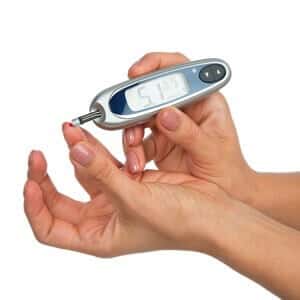
A century ago, before insulin was discovered in 1921, the way people with diabetes controlled their blood sugar was by not eating carbohydrate-rich foods. Could cutting carbs help improve your blood sugar control today?
Cutting Carbs Reduced Insulin Requirements:
Q. I’ve had type 1 diabetes for 36 years, and for the past five years I have cut back on carbs and processed foods. I had struggled for years trying to keep my blood sugar from going to extremes despite being on an insulin pump or multiple daily injections.
When I went low-carb (25 grams or less per meal), it made such a difference in my control. I had spoken with my former endocrinologist about going low-carb, but she discouraged it. When I decided to try this anyway, she was absolutely furious with me and told me I was going to get sick. That was the last time I saw her.
My HbA1c measurements are lower and my blood sugars are more controlled than they have ever been. I’ve not been sick, and I use less insulin. Cutting carbs may not work for everyone, but it has certainly been good for me.
Research on Cutting Carbs in Type 1 Diabetes:
A. A survey published in the journal Pediatrics (May, 2018) found that children and adults with type 1 diabetes following a very low-carb diet had exceptionally good blood sugar control. This flies in the face of conventional dietary recommendations.
People with Type 2 Diabetes Also Benefit from Cutting Carbs:
Although type 1 and type 2 diabetes have different causes, it seems that the same low-carbohydrate diet benefit both. Researchers compared low- and high-carbohydrate diets for managing type 2 diabetes (Tay et al, American Journal of Clinical Nutrition, Oct. 2015). People who followed a low-carb diet (<50 g/day) for a year had more stable blood glucose and better blood lipids than those on a high-carb diet. They also needed fewer diabetes medicines. Glycosylated hemoglobin (HbA1c), a measure of blood sugar over several weeks, improved on both diets.
A two-year study compared an energy-restricted low-carb diet high in unsaturated fat and low in saturated fat to a high-carb low-fat diet for people with type 2 diabetes (Tay et al, Diabetes, Obesity & Metabolism, April 2018). Here too, the group following the low-carb diet reduced the medicine they needed, stabilized their blood sugar and lowered their blood lipids more than the group on the high-carb diet.
How Can You Start Cutting Carbs?
You can learn more about how to follow a low-carbohydrate diet in our book, Quick & Handy Home Remedies. In it you will learn which foods to avoid and which should be staples in such an eating plan.

